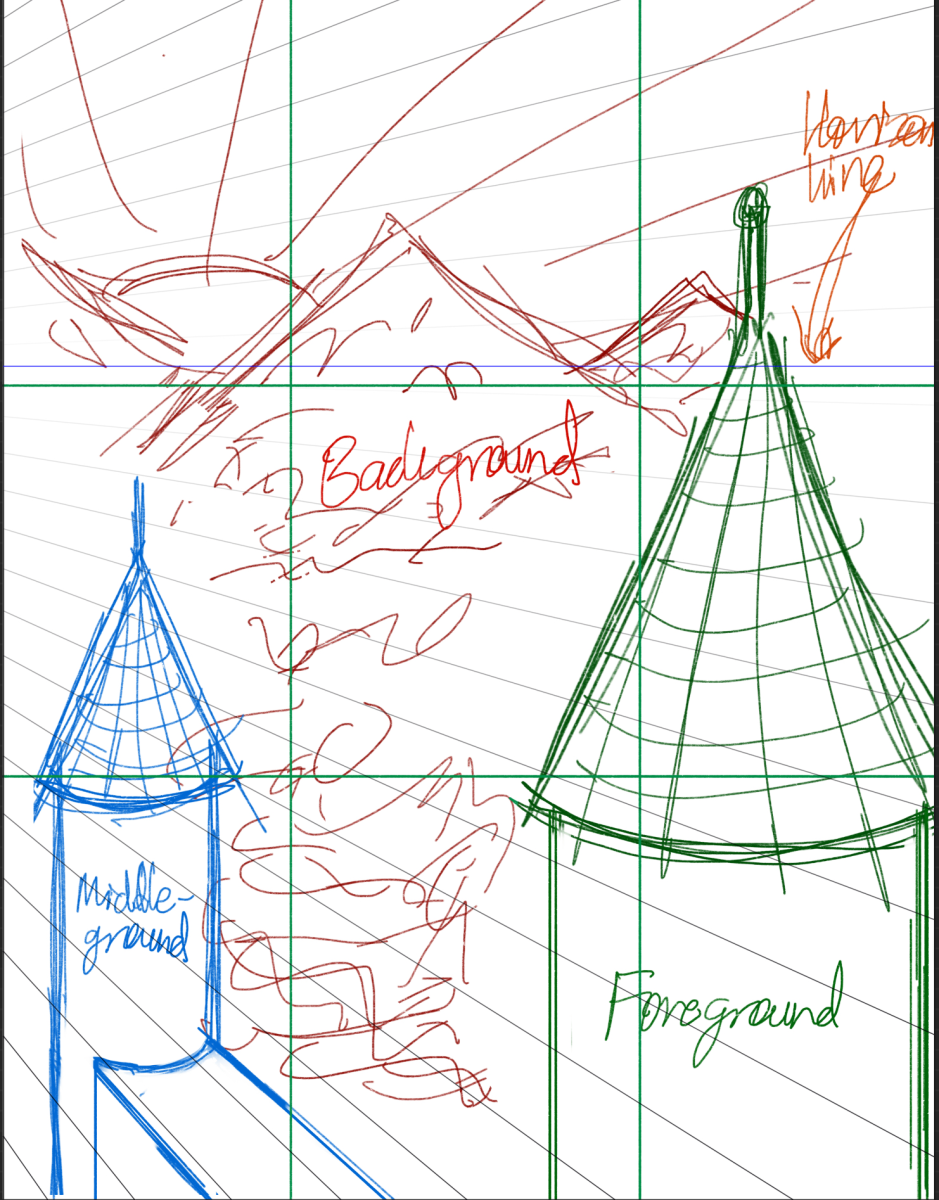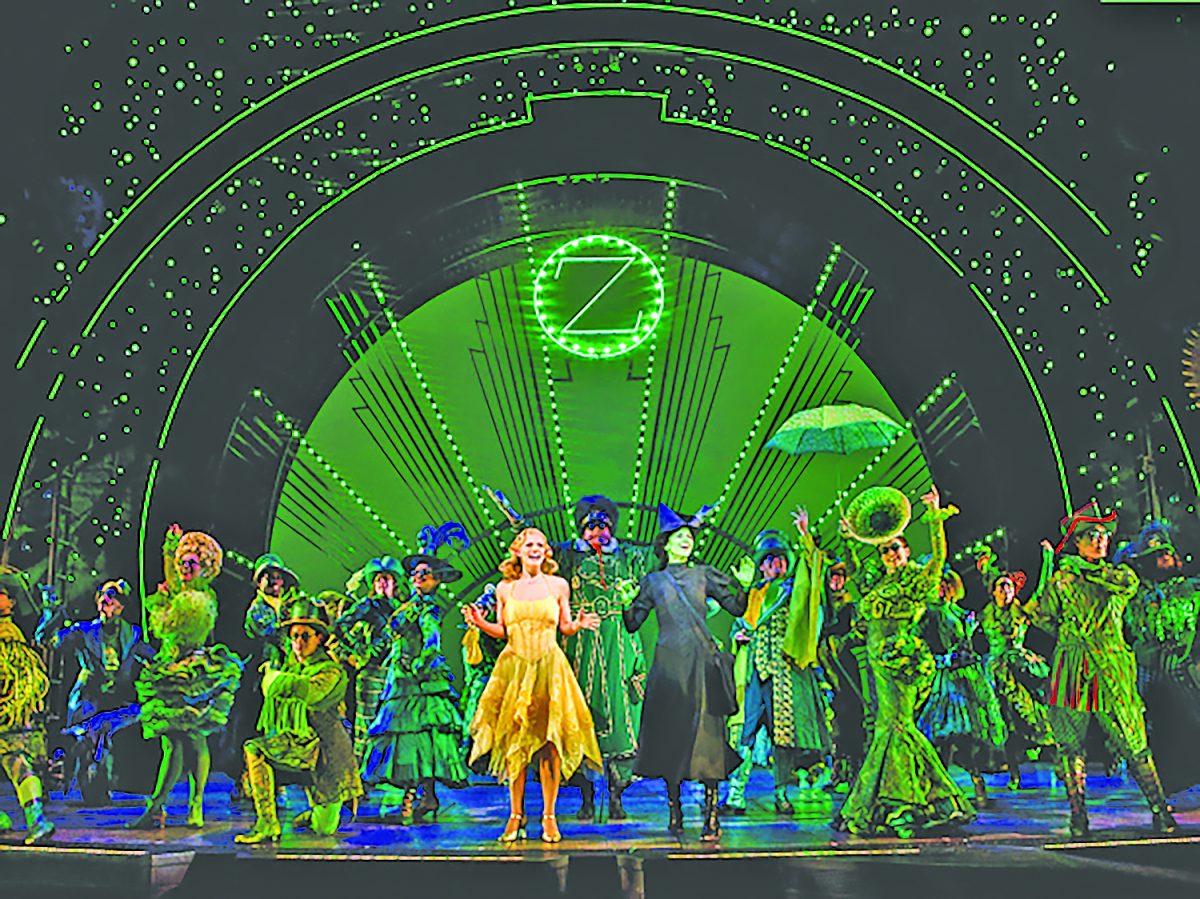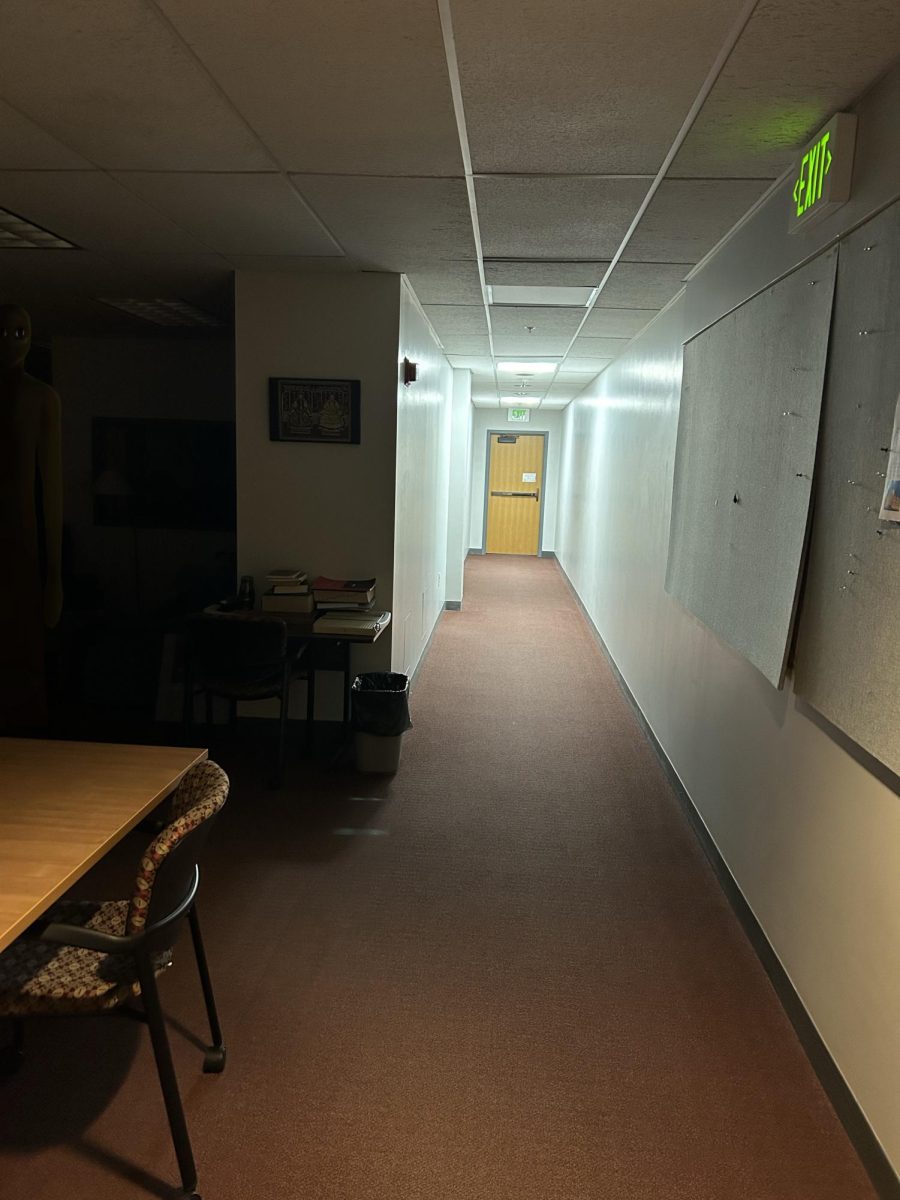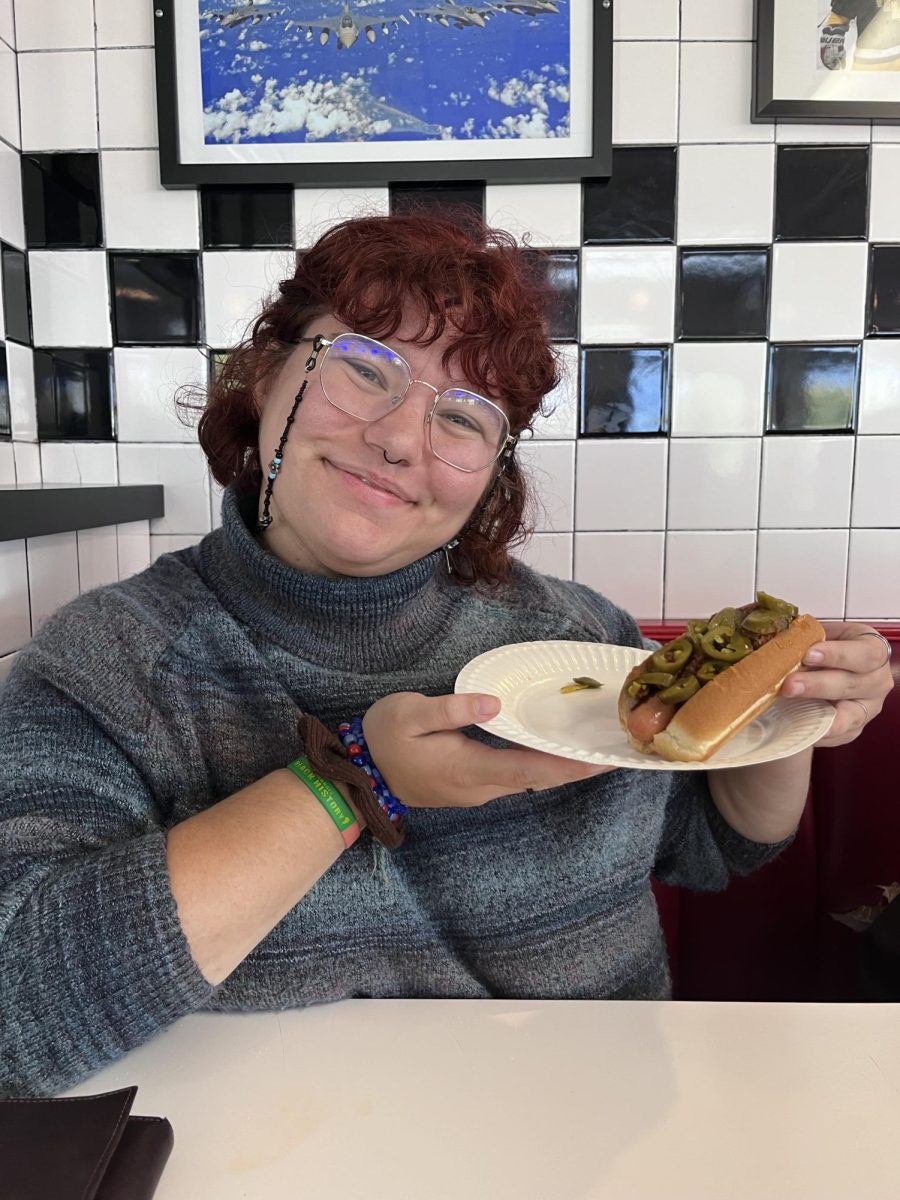Poet Edward Hirsch’s reading from his recently published “The Living Fire: New and Selected Poems” at the Stearns Stage on Monday, Nov. 5, provided a glimpse of one of America’s greatest living poets. Basement Medicine reporter Justin Little caught up with him just after the reading. .
How do you keep your ideas as fresh and satisfying as the day you started writing?”
That’s a challenge, but you know, when your life keeps changing — and even the things that happen to you in the past you can face in a new way as you get older — you can think about things in a different way. And then, the poetry itself is ever fresh, what you read and what you discover. I did write that poem “Branch Library” in order to try and get back in touch with the feelings that I had, because sometimes you feel you’re losing your excitement. I wrote “Branch Library” to try and get back to the feelings I had when I first started writing, the freshness you’re talking about.
On a related note, how did you first get a feel for the kind of poetry you enjoy?”
When I first started reading, I had teachers who pointed me towards things. I especially liked the metaphysical poets, and I just hadn’t heard of anything, so when my teachers mentioned things, I went and read them. But, on my own, sometime in my sophomore, junior year in college, I began finding poets from different countries, and they were very exciting to me, and I just began to have a feeling, not just for what I’d like to read, but maybe this would point a way towards the way I would want to write.
Does being a teacher influence your poetry any? Is it an enhancement or a distraction, do you think?
I think that it enables you in ways you don’t understand, that you may not know, because you’re doing something different than you’re practicing. When you’re teaching, you’re talking about poems with other people. When you’re writing, you’re by yourself. But I think probably trying to explicate poems in class has influenced me to try and be clearer, to try and make whatever I want to say is clearly — say it as clearly as I can say it, from explicating poems, and seeing the difficulties people have with them.
I’ve noticed a deep appreciation of the Romanian poet, Paul Celan in your works. How did you find out about this artist?
I don’t remember how I first came on to him. I think that a poet named Jerry Stern read me a poem of Celan’s called “Fugue of Death.” It had been translated in an anthology edited by Mark Strand and Charles Simic called “Another Republic.” I was in my twenties when I heard this poem, and it changed me. The thing about Celan is that he was very important to me as a Jewish poet. As a poet, he wrote in German, but because of the Holocaust and what had happened he had lost both of his parents. He had a great lyric gift but he also turned against the German language in which he wrote poems. Yet he had a great idea of a poem as a message in a bottle, sent out to some future reader. Celan’s ideas about poetry, his struggle to connect, his torment, his Jewish-ness have all been really important to me as a model of thinking about poetry.
Do you ever have trouble with translating abstract emotion into words on paper? What about writer’s block?
I don’t think emotions are abstract, but I think it can be difficult to translate them into language. I’d say they’re encoded, and it’s very difficult to get them down in words, and sometimes you just can’t do it, sometimes you’re not ready to do it, and sometimes you are.”
They’re cryptic, you mean?
Yes, and I think sometimes you haven’t worked through things enough that you’re ready to deal with it, because when you write about it you have to deal with it, you bring it into the light, and sometimes it’s too unclear to you, or unresolved. So you sort of have to bring it forward, resolve and think about it, and sometimes you’re not ready for it, and sometimes you don’t have the chops, you just don’t know literally how to do it. But when you’re ready, emotionally, and you have the chops, and you’re ready for this particular emotion, then you can write a poem that expresses it.
Poetry can be on any topic, yet I still find your nature poems compelling. Nature poems are common, but I still love them. What’s writing a nature poem like? What does nature mean to you?
I think the thing about writing a poem related to nature — or the environment as it’s usually called now, sometimes people refer to it as environmental poetry — the thing about it is you realize that we’re part of something larger than ourselves, and we’re related to something that is not ourselves. I think the thing about being in nature and writing poems about nature connected to nature is how we have a human nature, but we’re in touch with something that’s not human, we’re a part of something that’s not human, and the idea for me of the poem in nature is that you’re paying attention to something that is not just human, that we are participating in something and connecting to something, some world that we live in but is not just ourselves, but that we’re a part of, and I don’t think that will ever go away.
You have called American poetry ahistorical before, said that sometimes we forget our past. Is there anything in particular that we should try to retain? How about something that should stay buried?
Well, Americans have a great gift for recreating ourselves, and for living in the present, but I think the thing is, I believe in the return of the repressed, and that if you forget, or if you deny what’s happened, it may come back to haunt you. It’s better to bring it into the light and deal with it. We saw this in Germany, with Germans wanting to bury the Holocaust, and others wanting to confront it. I’d say that we have difficult moments in the American past, and we also have a great history, and reconciling ourselves and thinking about that history of where we’ve been can help us think about where we want to go to. I think historical consciousness is important, and I don’t think it’s a good idea to bury. I think it’s better to bring it out into the light. We don’t have to blame everyone, we don’t have to live in a culture of blame, but I think we have to reconcile with what’s happened and what we’ve done.
Speaking of advice, your poem “Insomnia” seems to be about how trying too deliberately at something, such as sleep, will not give you results. This applies to poetry too, right? What advice would you give a young, inexperienced poet for finding inspiration?
My advice to a young poet is to read poetry; you can’t write poetry without reading poetry. You can also gain a tremendous amount by reading other poems, and other poetswho have gone before you. You can look to their work and get ideas from it, and you can get inspiration from it, so it doesn’t have to all come out of your own mind. It can also come out of what you’ve read, and what you’ve experienced, and what other poets have done, and you can try and shape their poems in relationship to theirs. So you can begin a conversation, not just with your own life but with other poetry.
What kind of inspiration do you see in a small Vermont town such as Johnson? I mean, what kind of atmosphere does this place encourage? Would a college campus alter that experience?
I think that the advantage of a small town, and a small college, is that you encounter people one-to-one, on a single basis. When you live in a city, you’re lost in a mass of people. When you live in a village, or a small town, you know everyone, and so, I think the advantage and the disadvantage of such a place is just this: you’ll encounter people you know. But to me, the mysteries of life are present everywhere, and what people experience, what they suffer, what they go through — falling in love, dying, the deaths around them— all this takes place in a small town, and, as well as in a big city. The thing about being in Vermont in particular is, it seems to me, it seems impossible to escape the elements, and so you’re not just in competition and relationship with other people, but you are also in nature. You don’t have to go very far to be in the woods and to recognize your relationship with the elements, and I think being in Vermont encourages you to think about that, and to understand that we’re part of that, that we’re part of something that’s not ourselves.






